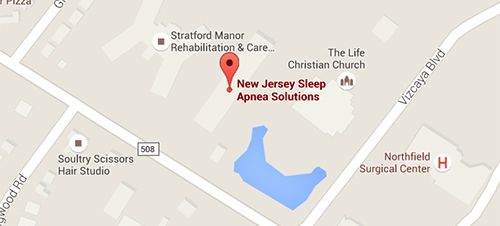Study Ties Sleep Apnea to Earlier Mental Decline
Submitted by New Jersey Snoring Solutions on Fri 05/22/2015 - 10:19

You may have heard that sleep apnea leads to an increased risk of certain health conditions, including stroke, heart attack, high blood pressure and diabetes. However, did you know that it can also lead to diminished mental function? In a recent study, researchers found a correlation between sleep apnea and early cognitive mental decline.
What Is Sleep Apnea?
Sleep apnea is a sleeping disorder; individuals with this condition temporarily stop breathing repeatedly during sleep. Individuals with sleep apnea can suffer up to about 100 episodes per night. Each episode can last a few seconds to a few minutes.
Sleep apnea can have immediate and long-term effects on the body and brain function (including memory). Aside from the health risks mentioned above, a prolonged lack of sound sleep — and the lapses of oxygen to the brain during sleep apnea bouts — can cause difficulty concentrating, mood swings and possibly an early mental decline.
About the Study
Researchers at New York University Langone’s Center for Cognitive Neurology published the findings of their recent study in Neurology, a medical journal. The researchers followed 2,000 adults, between the ages of 55 and 75, who were participating in the Alzheimer’s Disease Neuroimaging Initiative, or ADNI. The study participants suffered from mild cognitive impairment (MCI), Alzheimer’s or dementia or were cognitively normal.
The researchers surveyed the participants every six months, for about three years. They asked participants if they were suffering from sleep apnea, snoring and / or any changes in their cognitive function. The researchers found that the participants with sleep apnea and / or who snored developed signs of cognitive problems, such as slower thinking and memory lapses, about 12 years before the other participants who did not experience any disruptions in sleep. There was also a minor correlation between sleep disruptions and the onset or development of Alzheimer’s disease, but it was not as conclusive.
Although additional research is needed to learn more about the possible link between sleep apnea and early cognitive mental decline, one thing is clear: It is important for everyone to get enough quality sleep every night.
What to Do If You Think You Suffer From Sleep Apnea
If you snore loudly, wake up groggy after sleeping seven to nine hours, have difficulty concentrating, suffer from mood swings or experience other symptoms related to sleep apnea, contact us for help. To schedule a complimentary consultation to learn more about sleep apnea and hear your possible treatment options, contact New Jersey Sleep Apnea Solutions by calling (855) WHY-SNORE or (855) 949-7667 now.







